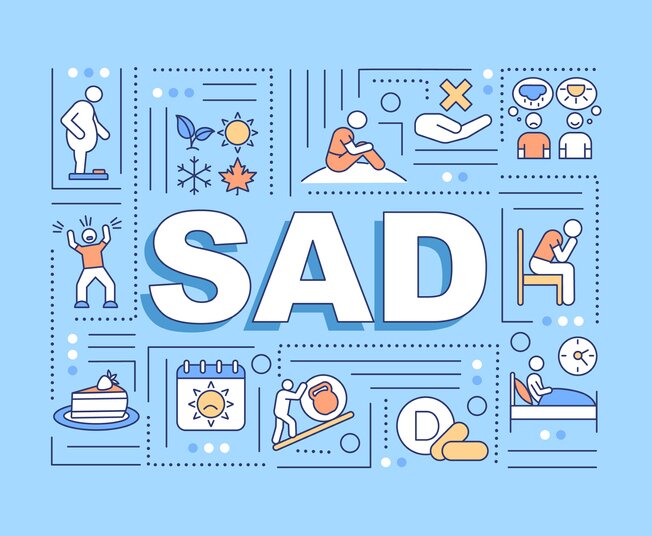Seasonal Depression, also known as Winter Blues: Is it Just Depression?
Seasonal affective disorder (SAD) is a form of depression also known as seasonal depression or winter depression.

People with SAD experience mood changes and symptoms similar to depression. The symptoms usually occur during the colder months when there is less sunlight. However, some people do experience SAD in the summer. The symptoms can interfere with daily functioning, similar to depression if not effectively treated. It simply is a form of depression.
About 5 percent of adults in the United States experience SAD, affecting more women than men, and it typically lasts about 40 percent of the year. Someone can be diagnosed with SAD at any age, but it typically starts between 18 and 30 years of age.
Symptoms of SAD include:
- fatigue
- weight gain
- feeling sad
- Loss of interest in activities once enjoyed
- Feeling worthless or guilty
- Difficulty thinking, concentrating, or making decisions
Treatment for SAD includes 2 different therapy techniques:
Light Therapy
This particular therapy involves sitting in front of a light therapy box that emits a very bright light that filters out harmful ultraviolet rays. Clients use the like at least 20 minutes or more per day, typically in the morning, during the winter months. Most people see improvements from this therapy within one or two weeks of beginning treatment. To maintain the benefits, treatment is usually continued through the winter months.
Cognitive Behavior Therapy (CBT)
CBT is a form of psychological treatment that has been significantly researched and effective. It is based on three core principles:
- Psychological problems are based on faulty or unhelpful ways of thinking
- Psychological problems are based on learned patterns of unhelpful behavior
- People suffering from psychological problems can learn better ways of coping with them
CBT can thereby relieve symptoms of SAD and help clients become more effective in their lives. For those who don’t want to try therapy first, time outside with increased exposure to sunlight can help improve symptoms as well. Additionally, having a space in your home or office that has an exposed window during the day can be helpful. Lastly, regular exercise, healthy eating, and getting enough sleep can also help.
If you have SAD symptoms and would like someone to talk to, please reach out to our compassionate team which includes Leslie Holley, a celebrated, nationally-certified Licensed Clinical Professional Counselor.
About Vaughn Greene Funeral Services: For more than 25 years, Vaughn Greene Funeral Services has been providing a ministry of care to Baltimore’s African American community. As a leading local, minority- and family-owned provider, we promise to provide our highest level of service and respect to families who entrust us to honor their loved ones. For more information about our funeral, cremation, memorial, repast, and grief counseling services, please call us at 410.655.0015 or visit us online at https://vaughncgreene.com/.
Sources:
- https://www.apa.org/ptsd-guideline/patients-and-families/cognitive-behavioral
- https://www.psychiatry.org/patients-families/seasonal-affective-disorder










Comments